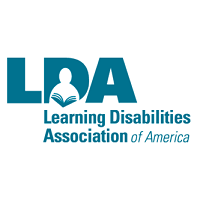
|





|





| |

According to the National Center for Learning Disabilities, 2.4 million students are diagnosed with a learning disability and receive special education services in school each year. Learning disabilities can become very frustrating for children and their parents as they try to support them. As part of Learning Disability Awareness Month, Kids In The House experts share important insights on on aiding children with learning disabilities to succeed by reminding them to remain patient in their studies and by helping them gain a better understanding of their disability. Neuropsychologist Dr. Jerry Schultz is on the faculty of the Harvard Medical School in the Department of Psychiatry and is the Chair of the Professional Advisory Board of the Learning Disabilities Association of America. Dr. Schultz has created an eight-step model to help children with learning disabilities avoid stress. The model is explained below, using the DE-STRESS acronym: Define: Decide on a diagnosis for the child. One of the hardest steps of this model is educating a child about his/her disability. Psychiatrist Dr. Ned Hallowell explains how important it is to talk to children in a way they will understand. Dr. Hallowell specifically works with children struggling with ADHD and explains their diagnosis by saying they have a “Ferrari engine for a brain” but with “bicycle breaks” for stopping. He says he is a “break specialist” who will help them strengthen their breaks throughout the years. In the end, instead of saying, “I have some deficit disorder that needs to get treated,” the child will say, “I’ve got a race car brain and I need to strengthen my breaks, so I can be a champion.” Clinical psychologist Karen Schiltz echoes both Dr. Schultz and Hallowell in explaining how important it is to see beyond the label of a learning disability. By showing kids their strengths and building their confidence, you will enable them to truly understand how they can succeed. She explains that while “labels are important and do help us understand the child… we all look at what’s underneath the label to really help your child.” Do you still have questions about a specific learning disability? Join us for our Google Hangout, “Learning Disabilities: Understanding and Supporting Our Children,” on Wednesday, October 29th from 1:30PM-2:00PM PST for a live Q&A discussion with Dr. Jerry Schultz and Dr. Karen Schiltz! Click here to RSVP for the event! Lastly, Kids In The House hopes you have a fun and safe Halloween! Click here to check out tips from lifestyle expert Samantha Ettus on how to escape the fear of Halloween stress!
What Can We Help You With?We want to hear from you! Are you looking for advice? What is the biggest struggle you are having in parenting? Ask us your questions by tweeting us @kidsinthehouse with the hashtag #KITHtips and we'll get back to you with our top experts' advice! |
         
|
||||||||
|
|||||||||
Copy and Paste Newsletter Code Box (HTML)
Click the box below and press Ctrl C (PC) or Command C (Mac) - Generate PRINT Version








